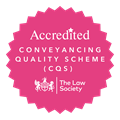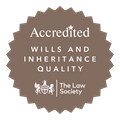If Landlords were not having a difficult enough time this year, new temporary legislation has just made things a lot tougher. As a result of the current national lockdown, new temporary rules have come into force regarding the eviction of residential tenants. The Public Health (Coronavirus) (Protection from Eviction and Taking Control of Goods) (England) Regulations 2020 states that as of 17 November 2020, a residential tenant cannot be issued with a warrant for possession or be served with a notice of eviction. However, whilst this offers more protection to residential tenants during these difficult times, scenarios remain whereby a tenant can still be evicted. As detailed below, these include when an order for possession is made against a tenant who:
- has been convicted of anti-social behaviour
- is deemed to have been a nuisance to the landlord or other residents in the locality or is using the property for illegal or immoral purposes
- has been convicted of an indictable offence in the UK
- has fraudulently induced the landlord into entering into the tenancy
- is in substantial rent arrears of no less than nine months and these arrears must have been accrued before 23rd March 2020.
These rules will be in place until 11 January 2021, whereupon it will be reviewed by the government.
Regarding taking control of goods, enforcement visits are permitted during the national lockdown, provided that enforcement agents adhere to the Covid-secure guidance. But only after the end of the current lockdown.
The current restrictions, whilst restricting a landlord’s right to recover possession, do not prevent the landlord from pursuing other remedies. Options that still remain available to landlords include suing for the arrears as well as bankruptcy proceedings against individuals. Winding up proceedings are not available against corporate entities, unless it can be shown that the insolvency of the company was NOT caused by the coronavirus pandemic.
Please contact Arouge Ali or Andreas Liassides in our Litigation Department for further information and assistance on 020 8445 9898.







